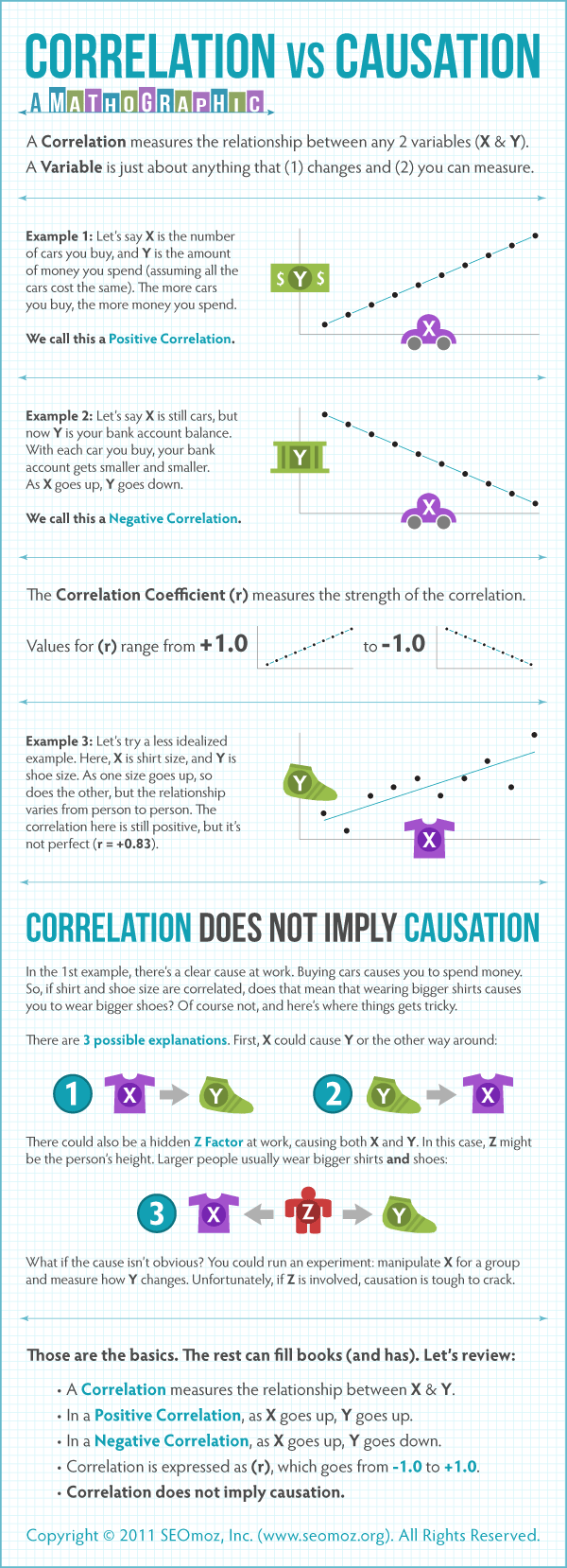What causes one page to rank higher than another in the search engines? I guess that’s the question every person doing SEO tries to figure out and replicate.
We’ve proven that quality backlinks to a page cause it to rank better, but is the anchor text used a cause for increased ranking or a correlation? Because none of us have access to Google’s Bing’s or any other search engine’s algorithm, we can only try different things out and observe the results.
That’s where things get tricky…
Say we observe the top 10 results for a bunch of keywords all have a keyword density percentage in a certain range. Does that density cause an increased ranking? What about:
 title tags (fairly sure it causes increased rankings)
title tags (fairly sure it causes increased rankings)- meta tags
- exact match domains
- country tlds
- non .com / .net / .org tlds
- text in header tags
- site load time
- presence of javascript
- text colour
- alt tags on images
The list could go on for pages. The point is, what causes higher rankings and what is just along for the ride?
To help understand correlation and causation a little better, let me present a great infographic from SEOMoz that does a better job than I ever could:
So what do you think? What have you found to cause an increase in SERP rankings and have you found anything along for the ride?



My own thoughts about what you say are mixed. There are so many different ideas, as to what makes a site rank at the top, that we can only do what we think is best. I know that back links do work, and that keyword density is one of the keys. Yet, the quality of back links and not the quantity will make a difference. The keyword density, if too high, will hurt you and not help you. What I focus on, is the quality of the article with about 1 to 3 % keyword density. I know that the article, will then never get slapped by the search engines, and, will make more sense to the reader, because it will flow better. So, for me it is the little things that I think will help people. Writing good content, that will be liked, will be better then a keyword filled article that does not make any sense. Google is always trying to improve their users experience, and if we keep that in mind, then we will get higher rankings, then someone that forgets that the goal is to have people enjoy the time on their site. Your friend in marketing Ken Somerville
Thanks Ken. See I think keyword density is highly correlative rather than causative. I’ve seen top ranked, quality web pages with a keyword density of 11%! In fact, I don’t even bother checking my articles for keyword density any more: as long as the keyword is on the page once that’s plenty.
I think you’re spot on about quality articles, though. With Google’s huge focus on figuring out algorithmically how to tell what is a quality article, if it’s not totally causative now it will be in the very near future.
Organized content is the best way to display or post an article, thank you for making it easy to digest your post.